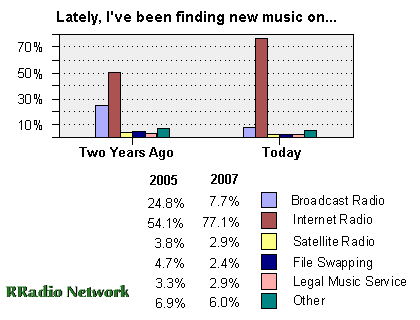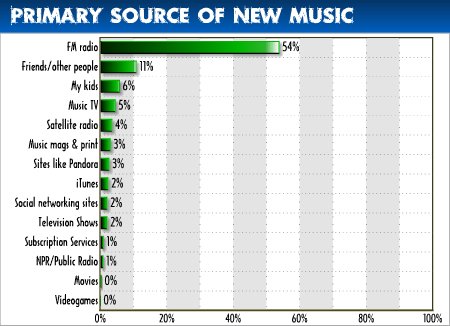É a indústria musical que está a travar o crescimento do audio online
Westergren responded by saying that licensing structures create inherent limitations in the service he can provide to his customers. Nordling commented that these restrictions affect her ability to respond to listener requests – she can’t even play a requested song until 20 minutes after the request is made (stations are also limited the number of songs they can play in a row by an artist and pre-announcing songs). These restrictions turn away listeners; if the music industry were serious about their business, the last thing in the world they’d want to do is send consumers running.
Both agreed that one key problem facing their industries is the DMCA. Designed to protect copyright holders, the act also limits new media’s ability to interact with customers. The DMCA states that delivery services can’t replace commerce, despite the fact, as Westergren noted, Soma and Pandora lead to commerce. Because labels continue to wallow in the notion of “hits” and slotting, they are in actuality limiting artist exposure.
(...)
A key aspect limiting online music services is cost. Sound Exchange, which collects fees for the RIAA takes approximately 12% of every dollar earned by stations like Soma; the fees are 14% for music delivered via satellite. Sound Exchange is lobbying Congress to increase this amount to 37% of receipts. Just for the privilege of playing a song on the newfangled version of the radio. While presumably this benefits artists in some way, it also kills innovation
It should be noted that these fees are not imposed on traditional radio, to quote Station Manager Ken Friedman of WFMU,
Broadcast stations have never been asked to pay this performance royalty. (On the contrary, record labels have traditionally lobbied, bribed and paid radio stations to play their records. Believe it or not, many stations will now be charged for webcasting the same songs they are paid to play over the airwaves.)
fonte: «Radio Killed The Radio Star, Part One» March 20, 2006, Medialoper; e «Radio Killed The Radio Star, Part Two», 22/03/06, Medialoper

